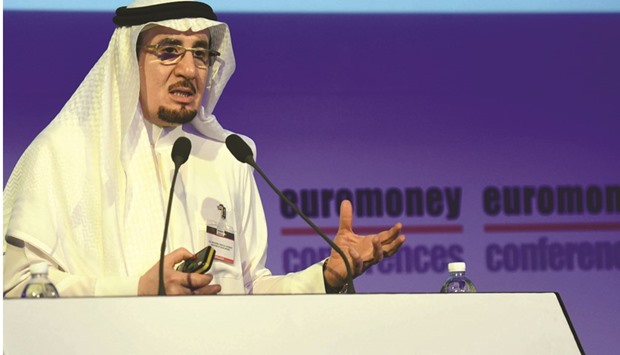Saudi Arabia’s government plans a new set of labour quotas and incentives to reduce unemployment as it tries to wean its economy off oil exports, Labour Minister Mufrej al-Haqbani said yesterday.
The changes are part of a wider reform plan announced last week by Deputy Crown Prince Mohamed bin Salman, and reflect the difficulties the kingdom has faced for years in creating jobs for Saudi nationals.
“There is no doubt that unemployment is a looming spectre and we will take all measures, whether job creation, job substitution or even, if required, increasing the Saudisation target,” Haqbani told Reuters in an interview.
He was referring to the possibility of restricting certain jobs to Saudis and pressing companies to employ higher ratios of Saudis to foreign workers.
Cutting the jobless rate to 7% by 2030, and raising women’s participation in the labour force to 30% from 22%, are among a raft of targets in Prince Mohamed’s reform plan.
Under a government programme called Nitaquat (“Categories”), launched in 2011, companies are already encouraged to hire Saudis rather than cheaper foreign workers. Firms employing high ratios of Saudis receive preferential treatment from the Labour Ministry in processing work permits.
The scheme has had only limited success, however. The official unemployment rate among Saudis is 11.6% and net employment of Saudis rose by only 49,000 in 2015, its slowest increase since records began in 1999, as the government cut spending because of low oil prices.
Haqbani said the government was ready to intervene on both the supply and the demand sides of the labour market. “We expect we will need from 1.1mn to 1.3mn jobs to reduce the unemployment rate to 7%.”
He said the government planned a new form of Nitaqat that would not focus merely on the numbers of Saudis hired but also on factors such as women’s employment, the average pay of Saudis, the ratio of the wages of Saudis to non-Saudis, and the sustainability of jobs occupied by local citizens.
“The new Nitaqat is not quantitative, based on the number of Saudis, but it will include other variables... We will announce it in two to three weeks, and it will be into effect within five months,” Haqbani said.
About 10mn foreigners are working in Saudi Arabia, doing many of the strenuous, dangerous and lower-paid jobs shunned by the 20mn local citizens. About two-thirds of Saudi workers are employed by the public sector.
But in recent months, the officials behind the economic reform drive have made it clear that they want the focus of job creation for Saudis to be in the private sector, as the government restrains its spending in an era of cheap oil.
“There are no exceptions from the Nitaqat for any sector, but the quotas are lower for some sectors according to their conditions,” Haqbani said of the planned system.
Minister ‘not satisfied’ with
level of female employment
AFP
Riyadh
Saudi Arabia’s labour minister is dissatisfied with the level of female employment in the kingdom but their not being allowed to drive is not to blame, he said yesterday.
Female Saudi unemployment rose last year to almost 34% while the overall jobless rate for Saudis fell to 11.5%, according to official figures cited by Jadwa Investment, a local securities firm.
“We tried (during) the last four years to increase the female participation in the labour market,” Labour Minister Mufarrej al-Haqbani told reporters.
But still, “I am not satisfied at all” with their employment rate, he said.
The kingdom’s ambitious Vision 2030 plan, released last week to diversify the economy away from oil, calls for increased female participation in the workforce and a lowering of overall unemployment to 7%.
More and more job sectors have opened to women, whose workforce participation - though still relatively low - has risen over the past few years.
But in the kingdom females are not allowed to get behind the wheel.
With limited public transport, women must rely on relatives to transport them, or pay a driver if they can afford one.
While Saudi women “are highly qualified” and “ready to work”, the work environment “is not yet that good for them” but will improve, Haqbani said on the sidelines of the Euromoney Saudi Arabia Conference.
Asked whether allowing women to drive could help female employment, he said: “I don’t think this is the reason for their participation” or not. The issue in all cases is not one for the Labour Ministry. “What I care about is the labour, work environment” which the ministry is trying to improve, he said.
A new initiative called “telework” allows women in isolated regions to work remotely in major cities, Haqbani said, without clarifying how this is achieved.
Women’s participation in the industrial sector is also rising, he said.
“So we are trying to provide them with a good environment and less costly tools to encourage them to participate.”

Saudi Labour Minister Mufrej al-Haqbani addresses the audience during the Euromoney Saudi Arabia conference in Riyadh yesterday.
